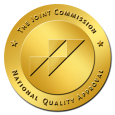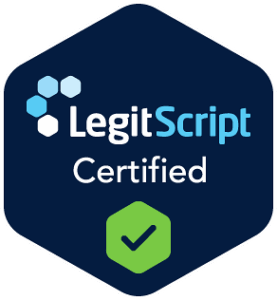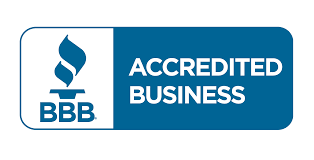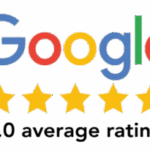

At Louisville Addiction Center, our Intensive Outpatient Program (IOP) offers comprehensive support and care for individuals seeking treatment for substance use disorders. Focusing on personalized care and evidence-based therapies, our IOP in Louisville, KY provides a flexible and structured approach to recovery. Through a combination of counseling, therapy sessions, and educational workshops, participants receive the necessary tools and support to address their addiction while maintaining their daily responsibilities. Our team of experienced professionals is dedicated to guiding individuals through every step of their journey. Thereby, helping clients achieve lasting sobriety and improve their overall well-being.

Our Intensive Outpatient Program in Louisville offers a high level of structure but in an outpatient setting. Therefore, clients can leave the facility where they get treatment. Like other outpatient programs, clients in IOP programs in Kentucky can live at home or in a sober living program during treatment. However, there are some differences between IOP and other outpatient programs.
The IOP level of care can be a step down from a partial hospitalization program (PHP). A PHP has a lot of structure where clients must attend their program most of the day for four to five days per week. After a PHP, clients gain the skills they need to stay sober without high levels of support and structure. But, if they still need a structured program, they can transition to an IOP.
Overall, IOP for addiction treatment offers more flexibility than a PHP or other higher levels of care, like detox or residential treatment. Our IOP in Louisville, KY occurs during the evening or on weekends so clients can attend school or work during the day. Most sessions will last a few hours during IOP and occur three to five times weekly.
Louisville Addiction Center designs each plan around evidence-based services that research shows improve outcomes. IOP addiction treatment at the facility may include the elements below, combined according to clinical assessment and personal goals:
| Service | Focus | Outcome Benefit |
|---|---|---|
| Trauma therapy (EMDR, brainspotting) | Process root triggers and stored traumatic memories | Fewer flashbacks, cravings |
| Individual & group CBT / DBT | Build coping, communication, and distress-tolerance skills | Better emotional regulation |
| Medication-Assisted Treatment (MAT) | Support for opioid or alcohol recovery when indicated | Reduced cravings, safer withdrawal maintenance |
| Holistic therapy (yoga, meditation) | Integrate mind–body practices into daily routine | Lower stress, improved self-awareness |
| Life-skills training | Budgeting, job readiness, household management | Greater real-world readiness and independence |
| 12-Step & peer support | Community-based accountability and mentorship | Ongoing encouragement and sober network |
By layering clinical therapies with peer and skill-building components, Louisville Addiction Center helps participants heal underlying issues while rebuilding practical life foundations. This balanced approach ensures IOP addiction treatment addresses both the causes of use and the challenges of day-to-day recovery.
Every client’s timetable at Louisville Addiction Center is designed around individual goals, work hours, and clinical needs. Still, the outline below shows how IOP drug treatment often flows when sessions are held on weekday evenings:
| Approx. Time | Activity | Purpose |
|---|---|---|
| 5:30 p.m. | Check-in & brief vitals | Safety screening, medication review |
| 5:45 p.m. | Psycho-educational group | Explore triggers, relapse cycles |
| 6:45 p.m. | Short break | Reflection, healthy snack |
| 7:00 p.m. | Individual therapy or case-management consult | Personal goal tracking |
| 7:45 p.m. | Skills workshop (CBT, communication, mindfulness) | Practical coping tools |
| 8:30 p.m. | Closing circle & next-day plan | Accountability, peer support |
Some weeks may substitute Saturday morning relapse prevention or family sessions, while others focus on evening groups only; exact hours, frequencies, and services are finalized after clinical assessment. This flexible, modular structure lets participants keep daytime employment or college classes while still engaging in comprehensive care.
The main difference between our PHP and IOP is the clients’ time in each program. Attending a partial hospitalization program takes about the same time as a full-time job. People could have 30 to 40 hours per week of programming in PHP. However, during IOP for addiction, most people will have between nine and 20 hours per week.
Another difference between these programs is that clients in a PHP often aren’t ready to work or attend school. They could need additional time or skills to obtain work or start a career track. However, clients in an IOP for addiction often have other obligations during the day that limit their availability to attend treatment. Yet, people in an IOP still need a lot of programming to maintain their sobriety and stay engaged in recovery.
Opting for IOP for addiction at Louisville Addiction Center blends the best of two treatment worlds—continuous professional guidance and everyday life engagement:
Each person’s path is unique, so the benefits look a bit different for everyone. Still, the aim never changes: steady, lasting recovery that fits into your life instead of pressing pause on it.
The IOP level of care varies from person to person and doesn’t suit everyone in recovery. For example, some people in the early stages of treatment need more structure and restrictions to stay sober. In addition, IOP is not a detox or stabilizing service. Therefore, someone in a crisis or actively using drugs and alcohol would not be a good fit for IOP.
Our intensive outpatient program in Louisville could be right for clients who meet the following criteria:
Additionally, an IOP could be suitable for those at the beginning stages of their alcohol or drug addiction. Not everyone’s addiction is the same. Some people have been using or drinking for years and face severe withdrawal after quitting. For someone looking to get ahead of their addiction before they need the restrictions of inpatient care could benefit from an IOP.
Our IOP addiction treatment center offers many of the same services as our PHP. However, unlike PHP, clients could have more choices about where to focus their recovery. For instance, a client could still need help with specific life skills, like maintaining a new job or getting a place to live. On the other hand, a person might only need therapy and relapse prevention skills. Since the causes and consequences of each person’s addiction are unique, not everyone will need the same types of services.
We offer the following services during our IOP:
Physicians prescribe FDA-approved medications such as buprenorphine or naltrexone for opioid misuse and acamprosate for alcohol dependence to curb cravings and stabilize brain chemistry.
Doses are reviewed weekly, adjusted to side-effect profiles, and always paired with counseling.
Medication-Assisted Treatment provides a safer physiological runway, allowing clients to focus on rebuilding routines, relationships, and emotional resilience rather than fighting constant urges.
Unresolved trauma frequently fuels relapse. Louisville Addiction Center’s trauma therapists use Eye Movement Desensitization and Reprocessing to calm the nervous system and reprocess distressing memories, while Brainspotting pinpoints stored somatic pain through guided eye positions. Both methods reduce hyper-arousal and intrusive thoughts, creating mental space for healthier coping strategies and making other therapies more effective.
Cognitive Behavioral Therapy helps clients identify triggers, challenge distorted thinking, and practice alternative behaviors.
Dialectical Behavior Therapy adds modules on emotion regulation and distress tolerance—skills critical during early recovery and high-stress moments.
Together, CBT and DBT provide structured, repeatable tools that clients can apply at work, home, or in social settings to maintain momentum.
Gentle yoga sessions ease muscle tension, steady breathing, and support better sleep. Art therapy turns paint or clay into a simple way to name hard emotions and discuss them in counseling. Both activities supply clear, hands-on tools for managing stress between clinical appointments.
These services help each client personalize their treatment plans. That way, they can focus on what is truly important during their recovery.
Louisville Addiction Center tailors IOP for alcohol to each participant’s needs by pairing medication-assisted treatment with targeted therapy. When clinically appropriate, FDA-approved medicines such as naltrexone or acamprosate may be prescribed to reduce cravings or ease post-acute withdrawal, always under the supervision of a medical provider.
Therapeutic work then weaves together individual counseling, cognitive-behavioral groups, and trauma-focused modalities like EMDR or brainspotting to address the thoughts, feelings, and memories that often drive drinking episodes.
For clients managing anxiety, depression, or post-traumatic stress disorder alongside substance use, a dual diagnosis track integrates symptom-management skills, peer discussion, and close psychiatric oversight.
Because every plan is individualized, the exact mix of medication, therapy style, and group frequency is decided after comprehensive assessment and revisited throughout care to keep treatment responsive and effective.

Substance use affects everyone under one roof, so Louisville Addiction Center brings loved ones into the process instead of keeping them on the sidelines. Weekly family therapy sessions give relatives a safe place to rebuild trust, set healthier boundaries, and practice clearer communication. Brief, practical workshops break down the science of addiction and recovery, equipping families with ways to offer support without enabling.
Optional evening support groups connect several households on similar paths. Sharing stories, tips, and hard-won encouragement builds empathy and fresh problem-solving ideas.
Participation can be as light or frequent as schedules allow, yet even a few visits often steady the home front—a key ingredient in long-term outpatient success.
IOP in Louisville, KY offers significant benefits for individuals seeking to prevent relapse. These programs provide a structured and supportive environment that allows individuals to continue their treatment while gradually transitioning back into their daily lives.
In addition, IOPs offer a flexible schedule, making it easier for participants to maintain their work, family, and social responsibilities while receiving the necessary therapy and support. This balance helps individuals build essential coping skills, develop a robust support network, and address the underlying factors contributing to their addiction, reducing the risk of relapse in the long term.
IOP can be a great way to step down from a higher level of care without having a gap in treatment. Clients can transition into an IOP after PHP or inpatient levels of care. At Louisville Addiction Center, we know the importance of gradually recovering from heroin, Xanax, or alcohol addiction and mental health disorders. That is why we offer varying levels of care, like IOP, during our outpatient programs.
Contact us today to learn more about our programs.
Our Intensive Outpatient Program (IOP) in Louisville, Kentucky provides structured addiction treatment while allowing individuals to maintain work, school, or family responsibilities. IOP is ideal for those stepping down from higher levels of care or beginning treatment with moderate substance use concerns.
Clients participate in multiple therapy sessions per week, including individual counseling, group therapy, relapse prevention planning, and skill-building interventions. Psychiatric services and medication management are available when clinically appropriate.
IOP provides accountability, clinical oversight, and community support without requiring full-time residential placement. This balance helps individuals strengthen coping strategies while rebuilding daily routines.
Recovery requires consistency and structure — and our IOP program provides both.
If you or someone you love is seeking flexible, evidence-based addiction treatment in Louisville, help is available now.
Contact Louisville Addiction Center today for confidential admissions assistance and fast insurance verification. Your recovery journey can begin immediately.
The information provided by Louisville Addiction Center is intended for educational and informational purposes only and should not be considered medical advice, diagnosis, or a substitute for professional healthcare treatment.
Louisville Addiction Center offers addiction treatment services, which may include residential treatment, individual therapy, group therapy, family therapy, relapse prevention planning, and supportive recovery programming. However, participation in these services does not constitute a guarantee of sobriety or specific treatment outcomes. Recovery is a highly individualized process, and results may vary depending on each person’s unique medical history, substance use background, mental health needs, and level of engagement in care.
Louisville Addiction Center is not a medical emergency facility and does not provide emergency services. If you or someone you know is experiencing a medical emergency, overdose, suicidal thoughts, or is in immediate danger, please call 911 immediately or contact the 988 Suicide & Crisis Lifeline.
Clients are encouraged to consult with qualified physicians, licensed mental health professionals, and other healthcare providers regarding any medical or psychiatric concerns, medication management, or co-occurring conditions. Treatment decisions should always be made in collaboration with licensed professionals.
The content on this website and within Louisville Addiction Center programming is not intended to replace individualized clinical evaluation, diagnosis, or treatment planning by a licensed provider.
By using this website or participating in services at Louisville Addiction Center, you acknowledge and agree that Louisville Addiction Center is not liable for actions taken based on the information provided and that treatment success depends on many factors beyond the scope of any one program.
If you have questions about whether our addiction treatment services are appropriate for your needs, please contact our admissions team for a confidential assessment.
Get Family Support Now
We understand addiction affects the whole family. Our comprehensive family program helps rebuild trust and restore relationships.
Weekly Family Therapy Sessions
Educational Workshops
Support Groups
Communication Skills Training
Substance Abuse and Mental Health Services Administration. (2024, October 11). TIP 47: Substance abuse: Clinical issues in intensive outpatient treatment. SAMHSA Evidence‑Based Practices Resource Center. https://www.samhsa.gov/resource/ebp/tip-47-substance-abuse-clinical-issues-intensive-outpatient-treatment American Addiction Centers+15SAMHSA+15Psychiatry Online+15
Substance Abuse and Mental Health Services Administration. (2021). Advisory: Clinical issues in intensive outpatient treatment for substance use disorders (based on TIP 47). SAMHSA. SAMHSA Library+2SAMHSA Library+2
Hartnett, J. L. (2013). Quick guide for clinicians based on TIP 47: Substance abuse—Clinical issues in intensive outpatient treatment [PDF]. SAMHSA. trinitybehavioralhealth.com+15cecentral.com+15SAMHSA Library+15
Psychiatric Services. (2013). Substance abuse intensive outpatient programs: Assessing the evidence. Psychiatric Services. Psychiatry Online
Society of Behavioral Medicine. (2020). Systematic review of intensive outpatient care programs for high‑need populations. Translational Behavioral Medicine. Sunrise Recovery Care+8Oxford Academic+8trinitybehavioralhealth.com+8
Connecticut General Assembly. (2016). Evaluation of a prominent level of care within the CT Medicaid Behavioral Health Service System: Intensive outpatient treatment [Report]. Connecticut General Assembly
ScienceDirect. (2024). Treatment outcomes of an adolescent intensive outpatient program for mental health: Impact on emergency department volumes and hospitalizations. ScienceDirect
Ohio Recovery Centers. (2025, June 2). Intensive outpatient programs (IOP): Theory, design, and their place in modern behavioral healthcare. Ohio Recovery Centers. OHIO Community Health
Trinity Behavioral Health. (2025). Are IOP (Intensive Outpatient Program) options effective? Trinity Behavioral Health. SAMHSA Library+11trinitybehavioralhealth.com+11Sunrise Recovery Care+11
American Psychological Association (APA). (2014). Meta‑analysis of IOP effectiveness: 50%–70% abstinence at initial follow‑up [Summary]. Sunrise Recovery Care. Sunrise Recovery Care









Substance Abuse and Mental Health Services Administration. (2024, October 11). TIP 47: Substance abuse: Clinical issues in intensive outpatient treatment. SAMHSA Evidence‑Based Practices Resource Center. https://www.samhsa.gov/resource/ebp/tip-47-substance-abuse-clinical-issues-intensive-outpatient-treatment American Addiction Centers+15SAMHSA+15Psychiatry Online+15
Substance Abuse and Mental Health Services Administration. (2021). Advisory: Clinical issues in intensive outpatient treatment for substance use disorders (based on TIP 47). SAMHSA. SAMHSA Library+2SAMHSA Library+2
Hartnett, J. L. (2013). Quick guide for clinicians based on TIP 47: Substance abuse—Clinical issues in intensive outpatient treatment [PDF]. SAMHSA. trinitybehavioralhealth.com+15cecentral.com+15SAMHSA Library+15
Psychiatric Services. (2013). Substance abuse intensive outpatient programs: Assessing the evidence. Psychiatric Services. Psychiatry Online
Society of Behavioral Medicine. (2020). Systematic review of intensive outpatient care programs for high‑need populations. Translational Behavioral Medicine. Sunrise Recovery Care+8Oxford Academic+8trinitybehavioralhealth.com+8
Connecticut General Assembly. (2016). Evaluation of a prominent level of care within the CT Medicaid Behavioral Health Service System: Intensive outpatient treatment [Report]. Connecticut General Assembly
ScienceDirect. (2024). Treatment outcomes of an adolescent intensive outpatient program for mental health: Impact on emergency department volumes and hospitalizations. ScienceDirect
Ohio Recovery Centers. (2025, June 2). Intensive outpatient programs (IOP): Theory, design, and their place in modern behavioral healthcare. Ohio Recovery Centers. OHIO Community Health
Trinity Behavioral Health. (2025). Are IOP (Intensive Outpatient Program) options effective? Trinity Behavioral Health. SAMHSA Library+11trinitybehavioralhealth.com+11Sunrise Recovery Care+11
American Psychological Association (APA). (2014). Meta‑analysis of IOP effectiveness: 50%–70% abstinence at initial follow‑up [Summary]. Sunrise Recovery Care. Sunrise Recovery Care









Get Family Support Now
We understand addiction affects the whole family. Our comprehensive family program helps rebuild trust and restore relationships.
Weekly Family Therapy Sessions
Educational Workshops
Support Groups
Communication Skills Training


Hear directly from those who have walked the path to recovery. Our patients’ stories highlight the compassionate care, effective programs, and life-changing support they’ve experienced. Let their journeys inspire you as you take your first steps toward healing.

Louisville Addiction Center is helping people in Kentucky overcome addiction and mental health challenges.

















